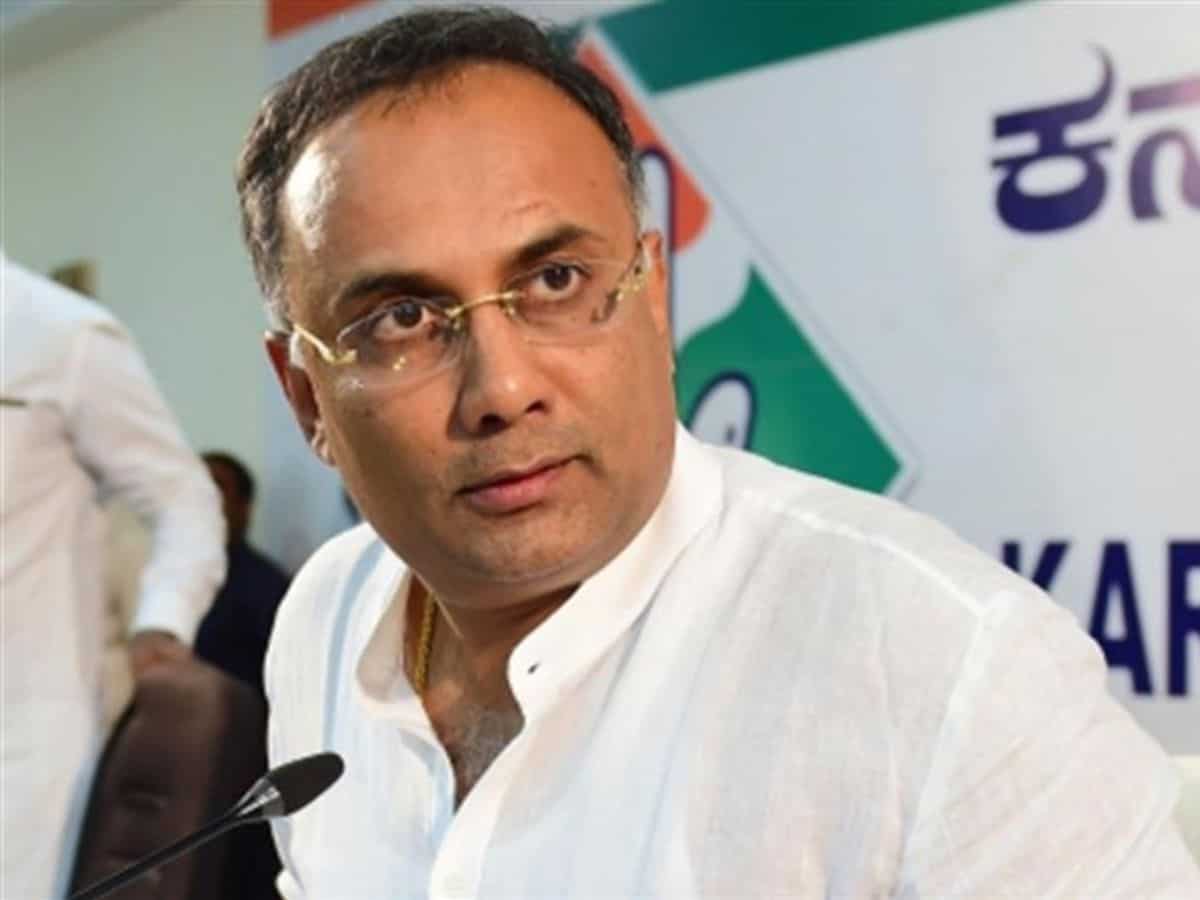
Bengaluru: Wearing masks, not sending children with symptoms to schools, adhering to COVID appropriate behaviour like social distancing, seven days home isolation and leave for infected patients, are among the measures that have been decided by the Karnataka government’s cabinet sub-committee on coronavirus, amid a spike in cases and detection of JN.1 infections in the state.
It has also decided to administer “precautionary vaccine” for the aged and those with comorbidities and to get 30,000 doses of Corbevax vaccine from the Centre for this purpose.
Detailed guidelines in this regard will be issued by the government soon, with New Year too round the corner.
“The guidelines are- everyone is advised to wear masks, especially those above 60 years of age and those with comorbidities compulsorily. Children, those with symptoms like cold, fever among other things should not be sent to school and remain at home under watch, also tested if required,” Health Minister Dinesh Gundu Rao said.
Speaking to reporters after chairing the cabinet sub-committee meeting on COVID, he said, the government is not imposing any restrictions on New Year celebrations and gatherings, but there is a general advisory to wear masks at crowded places and observe COVID appropriate behaviour like social distancing, using disinfectants or hand wash.
“Those infected with COVID should remain in home isolation for a week if not required to be hospitalised. All those who undergo home isolation and are working in government and non-government sectors should be given mandatory casual leave for a week, while those hospitalised should be given special leave for the hospitalisation period and guidelines will be issued on this,” he added.
The Minister reiterated there is no need for people to worry, but stressed the need to be cautious and take precautions.
There is no restriction on movement of people, also no screening or testing of people at border areas as of now, he added.
This was the first meeting of the cabinet sub-committee on COVID which was attended by Social Welfare Minister H C Mahadevappa, Medical Education Minister Sharana Prakash Patil, and Higher Education Minister M C Sudhakar, along with Rao.
The Karnataka Department of Health & Family Welfare Services on Monday said 34 cases of COVID-19’s variant JN.1 have been detected in the state so far, which include three deaths.
Stating that the cabinet sub-committee discussed the COVID situation with inputs on the situation both at the national and international level, Rao said the JN.1 infections are not surprising nor there is no need to panic about it, as its spread was expected.
The WHO and Union Health Ministry have classified JN.1 as Variant of Interest (VoI) and not Variant of Concern (VoC), he said, but precautions should be taken.
Admitting that though the state government had said 5,000 COVID tests per day will be conducted from Saturday, there was a slight delay and about 3,200 tests were done on Monday, the Minister said today the number of tests will reach 5,000 and necessary kits have been distributed to all districts and taluks.
“More tests will result in getting to know about more cases and infection spread.”
As of Monday 4,110 active cases are there across the country, out of them 3,096 are from Kerala, 436 in Karnataka, followed by other states, he said and added “it is to be noticed that Kerala and Karnataka are doing more number of tests…so more number of cases are being reported.”
Out of the 436 cases in Karnataka 400 are in home isolation, while 36 are in hospital, and out of them only 7 are in ICU, he further said and added those under home isolation will be tracked and follow-up will be done, also sewage surveillance in cities like Bengaluru and Mangaluru among others has been suggested for the sake of tracking.
Instructions have also been given to carry out a death audit, he said, adding “seven deaths have happened after the recent spike in cases and out of them as per current information at least three were with JN.1 infection and information regarding others are awaited, and all of them had comorbidities….out of seven four were unvaccinated.”
Noting that it has been decided to ensure the availability and working condition of tele ICUs and ICU beds, pressure swing adsorption (PSA) oxygen plants and Liquid Medical Oxygen (LMO), Rao said, directions have been issued to ensure all facilities are up-to-date and there are no shortcomings.
Pointing out that there is an opportunity for precautionary vaccine doses for those who have taken the first and second dose of COVID vaccine, the Minister said, “we have directed to get 30,000 doses of Corbevax from the Centre. These precautionary vaccines are for those with comorbidities, those using immunosuppressants and aged persons. It is for those who have not taken booster doses earlier.”
There are no vaccine stocks, he said and added that the state government is also writing to the Centre to provide Covaxin and Covishield, for anyone who wants to take vaccination afresh.
It has also been decided to administer flu vaccines compulsorily to all health workers in the state for the sake of protection, and these vaccines will be purchased based on the requirement, Rao said. Also, separate COVID wards are being set up at Victoria Hospital and Rajiv Gandhi Institute of Chest Diseases in Bengaluru, all hospitals of medical colleges and all district hospitals.
Noting that a committee has been constituted for price fixation on testing at private hospitals and testing or diagnostic centres, he said, within a couple of days an announcement will be made to this effect. It is also being directed not to do unnecessary CT scan of patients until they are diagnosed with COVID “to avoid misuse,” he added.
In response to a question, the Minister said the Indian Institute of Science and Indian Statistical Institute have been asked to do a predictive analysis with available data and submit a report about the possible spike in cases in the days ahead.
